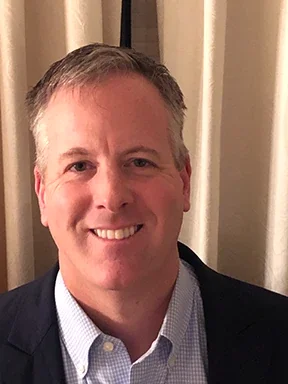An advance healthcare directive is an important estate planning tool that can offer you, and those closest to you peace of mind if you become incapacitated and difficult end-of-life choices must be made.
Preparing an advance healthcare directive can help alleviate some of the stress and anxiety associated with thinking about such serious matters.

What are advance healthcare directives?
An advance healthcare directive is a legal document in which a person communicates their wishes regarding end-of-life decisions. It protects an individual's right to refuse medical treatment that they do not want, or to request treatment that they do want, in the event they lose the cognitive ability to make and communicate healthcare decisions.
This is important in case an individual's health deteriorates to the point that they are no longer capable of making decisions on their own.
Why planning matters
The time to prepare an advance healthcare directive is while you are still competent. Once an individual becomes permanently incapacitated, they will no longer have the ability to make and communicate competent decisions regarding their end-of-life choices.
It must be clear to all involved that the choices you made regarding end-of-life decisions were communicated at a time that you were still legally and medically competent to do so.
In some states, the test is whether the individual prepared and executed the document while they were still "of sound mind and disposing memory."
Otherwise, there is a chance it will be declared invalid.
The different types of advance healthcare directives
There are generally two types of documents that potentially come into play in the event someone becomes injured, seriously ill, permanently incapacitated, or otherwise unable to make emergency medical decisions for themselves: a living will and a medical power of attorney.
Both of these documents fall under the umbrella of advance healthcare directives, which are also referred to as "medical directives," "advance decisions," "advance directives," or "personal directives."
A living will is a document in which an individual communicates their end-of-life health decisions and wishes in advance of becoming disabled. People will sometimes make arrangements to prepare a living will before undergoing major surgery, in the event the surgery goes awry and leaves them without the ability to make important healthcare decisions on their own.
Most states have advance healthcare directive forms available to download and complete with relative ease. Depending on the state in which you reside, the form for a living will and the form for a so-called healthcare surrogate, agent, or proxy may be combined into a single form, or they may be separate forms.
A medical power of attorney is a document in which an individual (the "grantor") authorizes another person (the "agent," "proxy," or "surrogate") to act on the grantor's behalf with respect to legal, medical, and other important healthcare decisions, including overseeing and honoring the grantor's end-of-life choices. If the person you designate as your power of attorney may become unable to serve, it is often advisable to name a successor medical power of attorney in the advance healthcare directive.
Depending on the state in which the grantor resides, a medical power of attorney is also referred to as a "healthcare power of attorney," a "durable power of attorney," a "healthcare proxy," a "patient advocate designation," or a "designation of surrogate."
How does an advance healthcare directive work?
The process for preparing an advance healthcare directive typically involves engaging in a frank conversation with family members (and many times your primary care physician) about what forms of treatments you might choose to have administered to you (or not administered to you) if your health begins to seriously decline.
To complete an advance healthcare directive, you should set out in clear and unambiguous language the types of treatment you would want, such as life support treatments, that may prolong your life, and those you do not want at the end of your life. Each state recognizes and utilizes a unique advance healthcare directive form for this purpose.
Although the advance healthcare directive forms may differ in some respects, some of the typical questions posed include the following:
- Whether you choose to employ all life-supporting treatments that might prolong your life
- Whether you choose not to employ any life support treatments, even though such treatments may aid in prolonging your life
- Whether you would prefer to have the medical staff employ some, but not all, life support treatments, such as medical devices to aid breathing (such as a ventilator), nutrition and hydration (such as receiving nourishment through a tube), a blood transfusion, administering of antibiotics and other medications
- Whether you would want to undergo one or more surgeries to help preserve your life
- Whether you want a Do Not Resuscitate (DNR) order to be added to your medical chart
- Whether you would like to become an organ donor
Next, when you are ready to execute the final version of the living will and/or power-of-attorney documents, most jurisdictions require two individuals over the age of 18 to witness and sign the forms, sometimes in the presence of a notary public.
Finally, it's a good idea to store the forms in an obvious, accessible location where they can be easily located in the event of an emergency. You might also consider making copies of these forms for your doctors, family members, and healthcare agents.
When can advance healthcare directives be updated or changed?
Your advance directive remains in effect from the time you sign it; however, you may modify or amend it at any time. It's advisable to frequently review your advance healthcare directive to make certain that it still represents your wishes regarding end-of-life decisions.
What happens if someone doesn't have an advance healthcare directive?
If an individual doesn't create an advance healthcare directive, medical decisions will largely be made by the person's primary care physician, together with the person's family.
Advanced healthcare directives can alleviate the strain and stress that loved ones may feel when speculating about what decisions you would have made had you not become incapacitated. They are an important piece of the overall estate planning process.

